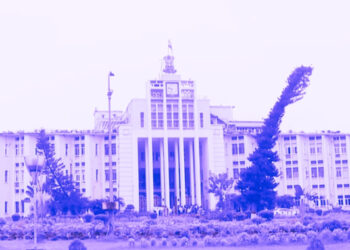The first case involves a 72-year-old resident of Nua Rausapatna, who had been suffering from cold and fever. After testing, the individual was confirmed positive for COVID-19 and is currently undergoing treatment at a private hospital. Similarly, a 44-year-old person from Jhola Sahi was identified as infected on Friday morning, also exhibiting symptoms of a cold and fever. This patient is likewise receiving care at a private facility.
ALSO READ: COVID-19 in Cuttack: First Case Sparks Concern Among Authorities
According to Cuttack’s Chief District Medical Officer (CDMO), Prashant Hota, both patients have been quarantined following their positive test results. “No travel history has been reported for either individual,” Hota stated, emphasising the need for vigilance.
This development comes amid a broader resurgence of COVID-19 across India after a three-year lull. On May 8, 2025, an elderly man in Bhubaneswar tested positive and was admitted to a private hospital. Nationwide, over 300 new cases have been reported, with cities like Mumbai, Pune, Chennai, and Ahmedabad witnessing a steady rise in infections. The JN.1 variant, a sub-strain of Omicron, is driving this wave, with symptoms similar to previous strains but a potential for rapid spread, experts warn. On May 20, Mumbai reported two COVID-19-related deaths.
Globally, countries like Hong Kong, Thailand, and Singapore are also grappling with rising cases. In Singapore, sub-variants of JN.1, namely LF-7 and NB-1.8, have been detected, noted for their high transmissibility and ability to weaken immunity. LF-7, another Omicron sub-variant, is contributing to the surge.
In response, Indian states are bolstering preventive measures, including increased testing and hospital bed preparedness. Health experts advise testing for COVID-19 if symptoms like fever or diarrhoea appear, as these are early indicators of infection. With the virus gaining ground, authorities urge the public to remain cautious and adhere to safety protocols.





























